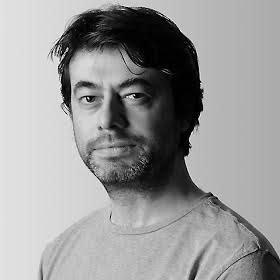Dire Straits keyboard player Alan Clark: “When Mark Knopfler first played Money For Nothing, there was no ‘I Want My MTV’... the idea was mine”
From Dire Straits to Dylan, Clapton, Tina Turner and beyond, we meet the player, producer and musical director who’s worked with a who’s who of superstars
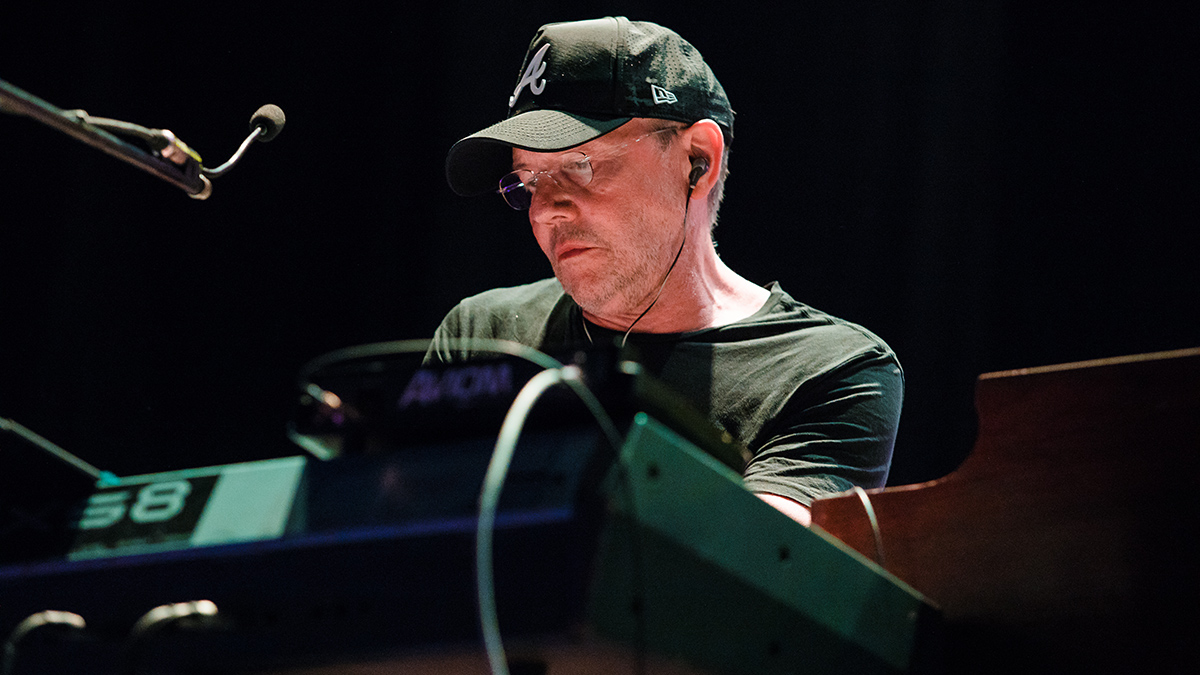
Want all the hottest music and gear news, reviews, deals, features and more, direct to your inbox? Sign up here.
You are now subscribed
Your newsletter sign-up was successful
Touring and recording as a vital member of Dire Straits. Penning movie soundtracks. Being musical director and touring with Tina Turner at the top of her game. And playing on classic tracks by everyone from Bob Dylan to Eric Clapton to The Bee Gees. Alan Clark has done the lot, and with a new solo album, he’s back for more.
Backstory is a compilation of some of the hits he’s been a part of, played in brand new arrangements on solo piano by the man himself.
We talked to Clark about the new album, his career so far - from origins to greatest hits - and of crafting a signature moment in a true rock classic…
You’ve worked with a staggering line-up of big names over the years on all kinds of projects. What is it that you bring to a session?
“I suppose it’s because I bring my own thing. People can go along to a session and bang out the standard ideas. I tend not to do that. I always have an idea of my own and go with that. And people seem to like that.”
What’s it like working with the big names? Dylan, Clapton, Knopfler…
“I don’t do the hierarchy thing. When you work with these people… They’re just people… Who just happen to be really good at what they do. Which is brilliant. Because I want to work with people who inspire me, and hopefully I can inspire them back. I put myself on equal footing with them. I don’t take orders from anyone.
Want all the hottest music and gear news, reviews, deals, features and more, direct to your inbox? Sign up here.
“There are one or two people who I won’t mention who - probably out of an insecurity - can come on like that, but I just deal with them. The best stars are the people who let you do what you’re good at. Because that’s what they get you for.”
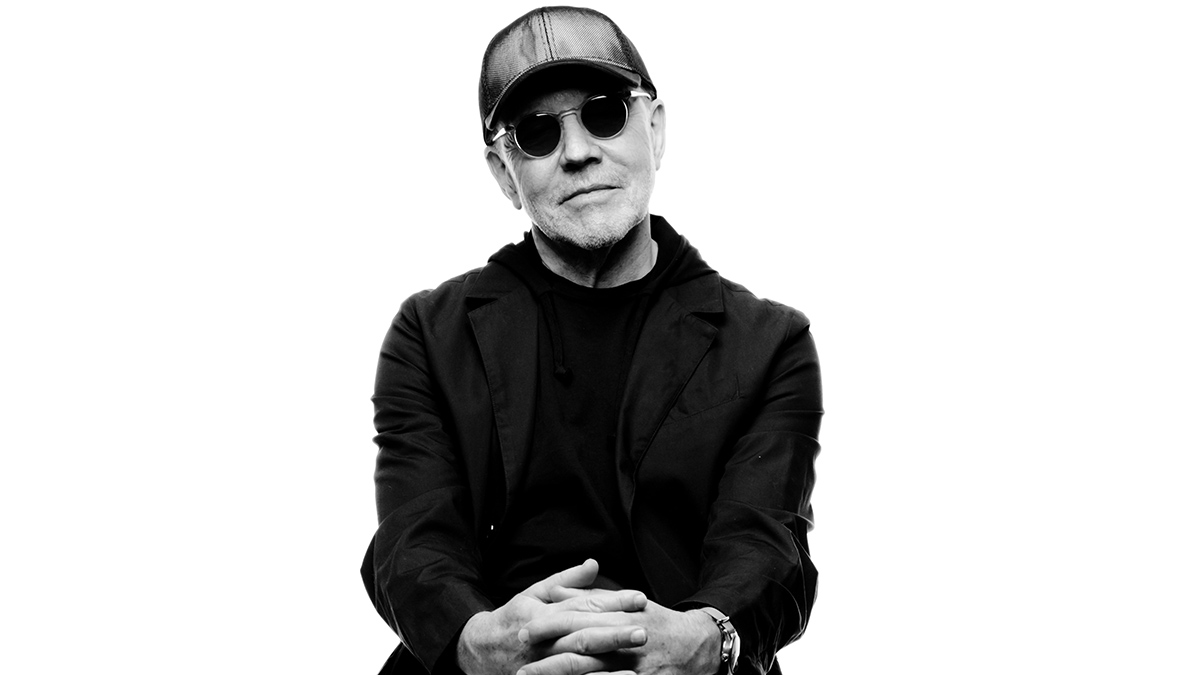
Do you always have a setup that you like to work with? What do you ask to be waiting in the studio for you?
“Well, it depends on the scenario. I’ve been working a lot with Trevor Horn recently and I’ll listen to the track and decide there and then what I’m going to use rather than plan ahead. A lot of the time we’re doing things virtually, working with virtual instruments, because that means that everything is instantly at hand in Pro Tools. If I play a piano part there, we might replace it with a real one later.
“I often just say ‘leave me to it for a while’ and I’ll go off and do my thing. Then Trevor can use as much of it or as little of it as he wants.
“That’s the way I work in my studio at home. I get the best results by taking my time and playing around with sounds and ideas, and eventually the best one will stick and I can take it from there. Working that way is the best way in the long run because you can really dig deep. People often expect something immediate… I do that as well but I like to dig deep.”
What’s the setup in your home studio?
“It’s Pro Tools and I’ve got one or two hardware synths. I’ve got a [Sequential Circuits] Prophet 5 that’s just been refurbished by a guy called Tiny Evans [of the Hammond Hire Company] who’s quite a famous keyboard tech and fixer. I’ve known him for 40 years. It’s a Rev 2 so it’s a really early one. I sent it to Tiny and he spent a week with it and it’s come back in pristine condition. Looks good and sounds amazing.
“I’ve a Korg Trinity which can be handy to go to occasionally, but the main thing I use is a Yamaha Motif XS8 which I’ve had for years. It’s got tons of sounds in it, including a pretty good piano sound that I use live. Stevie Wonder uses one when he plays live. It’s really pretty handy.
“I have a Clavinet… And a Wurlitzer piano… A Hammond B3… And then there’s all the virtual stuff.”
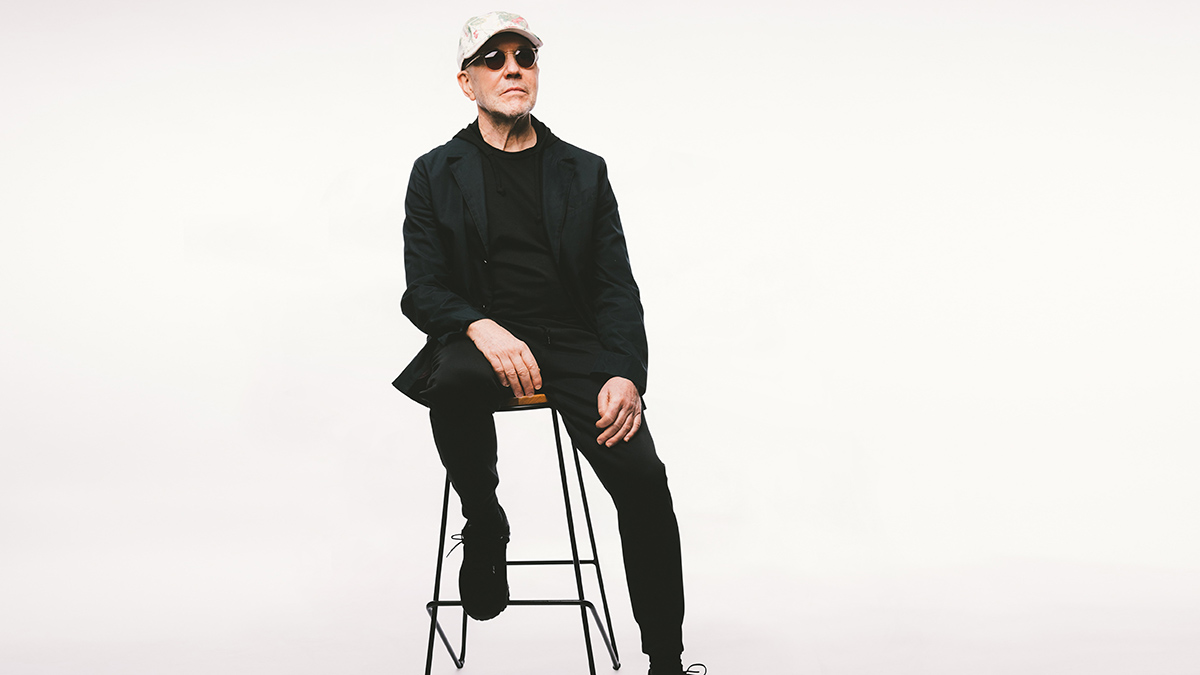
We’ve seen you playing live using the B3.
“I have a virtual B3 plug-in that’s pretty good for recording, but I wouldn’t dream of using it live. I always insist on the real thing. Always with a Leslie cabinet. Never without. Using the controls - a critical part of my playing is the constant fluctuation between the slow and fast on the Leslie.
“A piano I can compromise on. Once you have a grand piano on stage and you mic it up it can be a real pain. And you’ve got to tune it. And - at the end of the say - the sound that comes out the PA isn’t dissimilar from a digital piano. But I always need a real Hammond.
How did you get started?
“I started playing when I was six. Just plonking away on my Granny’s piano. There’s something about the piano. I just find any other instrument unsatisfactory. The piano is all encompassing. You can make a ‘complete’ sound, like you’re an orchestra. You’ve got the whole spectrum of sound and it’s percussive, too. A guitar, you can get there to a degree, but you’re limited.
“I started playing professionally when I was 13 and a Hammond organ shop opened in Chester-Le-Street in the northeast of England, near my home. Which was bizarre really. A little town with the Hammond distribution centre for the whole of the North East [of England].
A piano I can compromise on. Once you have a grand piano on stage and you mic it up it can be a real pain. And - at the end of the say - the sound that comes out the PA isn’t dissimilar from a digital piano. But I always need a real Hammond.
“Working men’s clubs were replacing their pianos with Hammond organs because it was ‘the new thing’, and the manager of the shop was running a pool of organ players to play them. There were soon more organs out there than players to play them. So when I was 13 the manager asked my Dad if I could play for him, and that’s how I started.
“When I was playing in the working men’s clubs I got to thinking ‘I need to take this a bit more seriously’. I was in my early 20s. I was making plenty of money. I’d play the clubs and then at 10:30pm I’d go to a nightclub and play until two in the morning. I had a brand-new car… But I thought I should be playing original music instead of playing everybody else’s.
“So I gave up the clubs and joined a band that ended up being a derivative of Geordie [legendary North-Eastern rockers most famous for hosting pre-AC/DC Brian Johnson]. Geordie had had their hits and broken up, but Vic Malcolm, the guitarist and songwriter, put the band together. And Brian Johnson ended up being the singer.
You’ve certainly done your share of gigging. How do you find those long laborious tours?
“You need to be young enough to make the most of it! That’s the trick - find ways to make the most of being dragged around the world.
“There are different levels of touring. The only time I’ve ever toured in a bus was the very first American tour in Dire Straits, part of which was in a sleeper bus. But pretty soon after that we were travelling first class. I’ve been to Australia five or six times now. First class British Airways every time.
You recorded your new album Backstory at Real World studios near Bath. That seems like a big studio for a piano-only album.
“I’d worked there with producer Alberto Fabris a few years ago on an album for an Italian artist called Pacifico. Alberto was a big fan of Real World. So when it came to my album it was an obvious choice. And I like the Bösendorfer they have there. It’s one of the nicest pianos I’ve played.
“And Peter Gabriel has a full-size Bösendorfer in his private studio in Real World and he very kindly lent me that too. So I had the two Bösendorfers back-to-back. But invariably, after playing the two, I’d jump back on the smaller one. Peter’s needs a bit of servicing.
Peter Gabriel has a full-size Bösendorfer in his private studio in Real World and he very kindly lent me that. So I had the two Bösendorfers back-to-back. But invariably, after playing the two, I’d jump back on the smaller one. Peter’s needs a bit of servicing.
“At home I’ve had a 7’ and a 6’ Yamaha but I’m actually between pianos. I’m looking at a beautiful Steinway from 1904 right now.”
How involved with the technical side of the studio do you get?
“Nah, I leave that up to the engineer. Occasionally I’ll intervene if I notice that the Leslie hasn’t been mic’d up properly but other than that…
“They used about 15 different mics on the piano for the recordings. The ambient sound was all the room mics. The room is permanently mic’d then we had the other mics placed everywhere.
“The engineer, Tim Oliver, is a bit of a boffin. I left it to him. It’s not a sound that people are used to. His sound is like having your head inside the piano. He literally had mics inside. You can hear the damper pedal going. Normally only the player can hear that kind of detail.”
One of the tracks on the album is Going Home, from the movie Local Hero. It’s a fantastic new recording of that track.
“Well, I recorded that soundtrack with Mark Knopfler and it took me about 20 years to be able to watch the film in the way that everybody else does. When you work on a soundtrack you see each scene over and over, in the wrong order. By the time it comes out you’re watching a series of clips in an order you’ve never seen before. But one night, I was at my house in Spain and it came on TV. So I watched it and saw what everybody else sees in it for the first time. It’s a beautiful, beautiful movie.”
It must have been so hard picking just 10 tracks for the album.
“Well, obviously there was going to be some Dire Straits. I just messed around with them and came up with the ones that worked best. Romeo and Juliet was an obvious one, but it was all about finding a way to play them that wasn’t the same as the record.”
Did you score out new arrangements?
“Nah, it was all in my head.”
Would you ever describe yourself as a ‘synth guy’? Or have you always been from that piano and Hammond heritage?
“Well, yes. I was a synth guy. I started with piano or Hammond but certainly by Brothers in Arms I was surrounded by synths - like Rick Wakeman! MIDI didn’t really exist then. I used to play a 6’ grand piano on stage at the time and my keyboard tech came up with a thing underneath the keys so I could trigger a whole bunch of other keyboards from the grand piano, which was amazing.”
Inevitably, we have to ask about Money For Nothing. What was it like working on a track like that? Such an iconic, defining piece of music?
“Well, there’s that line - “I Want My MTV”. My esteemed and much-loved fellow band member John Illsley, in his book Brothers in Arms - My Life in Dire Straits, he mentions it was Mark Knopfler’s idea to include the line “I Want My MTV”. Entirely forgivable. It was 36 years ago… But it wasn’t Mark’s idea.
“In rehearsals when Mark first played Money For Nothing to the band, there was no intro and no “I Want My MTV”. It started with an early version of that guitar riff. During a break in rehearsals, when most of the band were out of the room, I started creating the intro on my keyboards, singing “I Want My MTV”. By the end of the day, the track had an intro. That’s the short version. For the record: the idea was mine.
And you played on Alone for The Bee Gees…
“I got to know the producer Russ Titelman when I worked on Eric Clapton’s Journeyman album. And Russ called me over to New York to play with the Bee Gees - two tracks on Still Waters. And Alone was one of them. He had me booked for three days but we were done in the first day.
“Next day, we came in and had a listen… And we were done! We ended up going to a bunch of record shops instead. Bought a load of CDs and ended up playing them in the studio instead.”
On stage or studio, have you ever had any real disasters?
“Well, if I play one note wrong, it’s a disaster! And I’ve done plenty of that.”
So what’s next for you?
We have a Dire Straits band comprising a whole bunch of Dire Straits guys. It started as a bit of a lark in Italy - John Illsley, and I, playing with a band - but we developed it because we enjoyed it so much. People join us, come and go from Dire Straits… There’s been quite a few people in Dire Straits.
“Right now Trevor Horn is on bass, there’s Mel Collins, the original sax player in Dire Straits, and Phil Palmer on guitar. He’s an amazing session player who played with Dire Straits and with me in Eric Clapton’s band. Danny Cummings on percussion, who plays drums with Mark Knopfler. We’re called the Dire Straits Legacy. We’re playing the O2 on the 15th of January… Virus permitting!”
Alan Clark’s album, Backstory, is available now on CD, vinyl and streaming services.
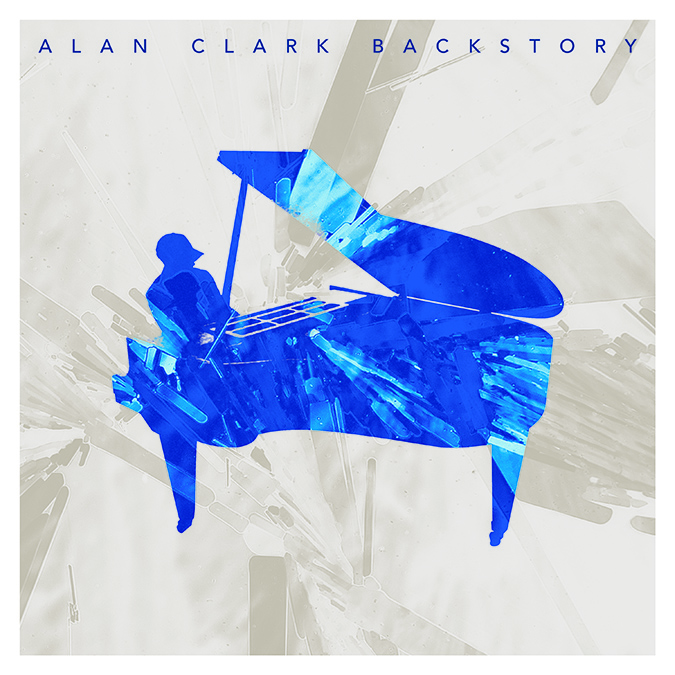
Daniel Griffiths is a veteran journalist who has worked on some of the biggest entertainment, tech and home brands in the world. He's interviewed countless big names, and covered countless new releases in the fields of music, videogames, movies, tech, gadgets, home improvement, self build, interiors and garden design. He’s the ex-Editor of Future Music and ex-Group Editor-in-Chief of Electronic Musician, Guitarist, Guitar World, Computer Music and more. He renovates property and writes for MusicRadar.com.
